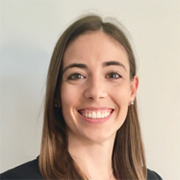A .gov website belongs to an official government organization in the United States.
A lock () or https:// means you've safely connected to the .gov website. Share sensitive information only on official, secure websites.

Within the Climate Change Division at the U.S. Environmental Protection Agency, the Climate Science & Impacts Branch is responsible for a variety of analytical activities such as assessing climate change vulnerability and integrating information on climate science, impacts, and mitigation and adaptation strategies into broader analytical frameworks. This includes synthesizing and leveraging existing information on climate science, impacts, indicators, and adaptation to inform policy decisions and communicate science to the public and other audiences. This presentation will highlight some of CSIB's recent analytical impacts work, with a focus on linkages between climate and air quality, including an overview of the Climate Change Impacts and Risk Analysis (CIRA) project, as well as the recently developed Framework for Evaluating Damages and Impacts (FrEDI). FrEDI is an open-source framework and R package designed to rapidly project monetized climate change impacts through the end of the century in the contiguous U.S., under any warming scenario. Using FrEDI to project climate change impacts under 10,000 probabilistic emission and socioeconomic scenarios, mean climate-driven damages across 20 sectors are anticipated to total over 3 trillion dollars (2020 USD) by 2100. Economic damages are the greatest in FrEDI sectors that reflect impacts to public health. For example, mortality attributable to climate-driven changes in air quality is one of the largest sectors at the national scale, second only to increased mortality from projected changes in extreme temperature. At the regional scale, FrEDI additionally illustrates that large damages are associated with mortality from increased exposure to dust and wildfire smoke in the western U.S., in contrast to coastal property damage and high-tide flooding dominating damages in eastern and southern coastal regions. These and other CSIB products and tools are continually being updated to reflect the latest science and new collaborations are welcome.
Dr. Erin McDuffie is a Physical Scientist in the Office of Atmospheric Programs in the Climate Change Division of the US Environmental Protection Agency (EPA). She received her PhD in 2018 from the University of Colorado Boulder, where she completed her doctoral research in CSL's Tropospheric Chemistry program. She then joined Randall Martin's group jointly at Dalhousie University and Washington University in St. Louis as a postdoctoral fellow. In 2020, she was selected as an American Association for the Advancement of Science (AAAS) Science & Technology Policy Fellow and spent two years in the EPA Executive Branch. She now holds a Physical Scientist position in that office, where her work focuses on the science and policy of climate change.
Webinar Registration Confirmation of registration includes information about joining the webinar. View System Requirements.
ALL Seminar attendees agree not to cite, quote, copy, or distribute material presented without the explicit written consent of the seminar presenter. Any opinions expressed in this seminar are those of the speaker alone and do not necessarily reflect the opinions of NOAA or CSL.